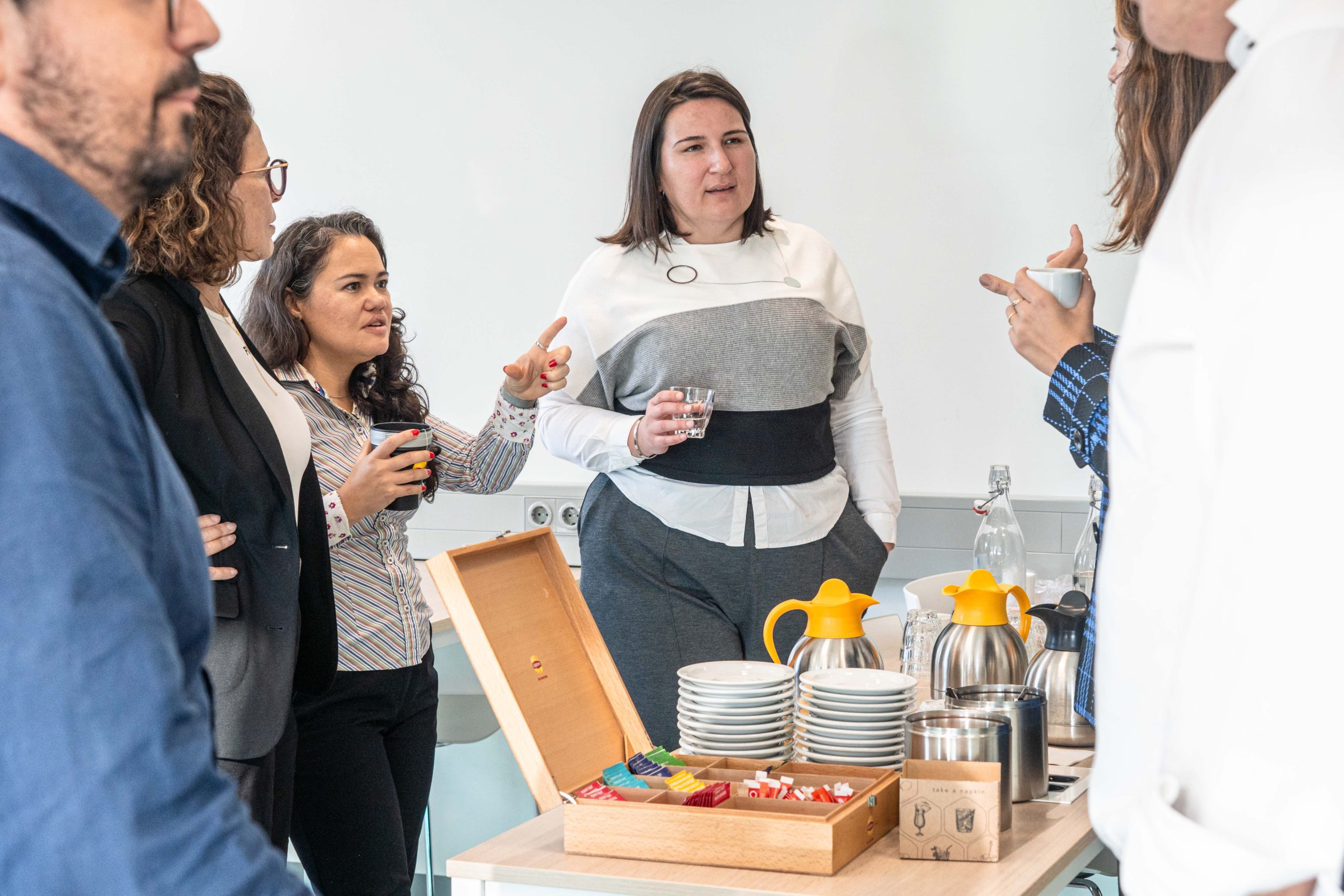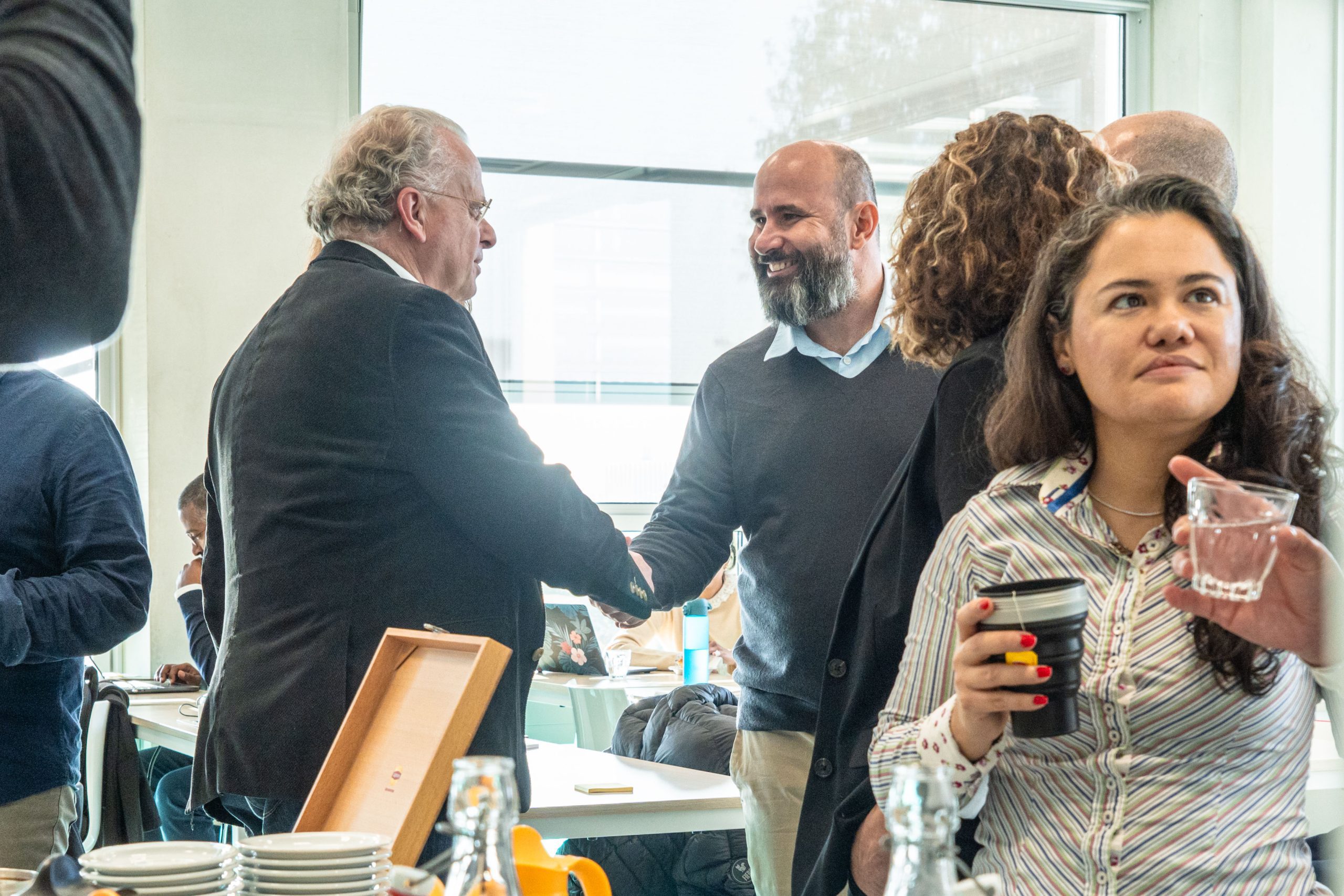To mark their 25 year partnership, TU Delft and the University of Campinas (Brazil) launched an international academic leadership programme. Twelve participants started the course on Monday, 4 November 2024.
Luuk van der Wielen meets his Brazilian fellow Leonardo Vasconcelos Fregolente. (Photo: Thijs van Reeuwijk)
Through this international leadership course, TU Delft and Unicamp celebrate a quarter of a century of international collaboration. Their partnership began in 1999 with joint research on bio-based fuels and sustainable resources for chemistry, later expanding into areas such as water, infrastructure, and energy. The collaboration has delivered 15 doctors with dual degrees, 24 joint research projects, and over EUR 20 million in research funding.
Unicamp Rector Antonio Meirelles joined the kick-off of the Executive International Academic Leadership Program via video link from Brazil. He expressed the hope that the participants would contribute to tackling humanity’s major challenges, including climate change, extreme weather, and sustainable development.
At TU Delft, Interim Vice Rector Magnificus Hans Hellendoorn said he expected the most interest to be in climate & energy. “Students often choose these subjects because they’re directly relevant to their future,” he said.
Leadership Course
The new leadership programme complements TU Delft’s existing leadership training, said Patricia Osseweijer, TU Delft’s ambassador to Brazil. The existing course hardly addresses internationalisation. The new programme set up by TU Delft and Unicamp focuses on academic leadership emphasising the international context. Topics include evolving social sensitivities, such as inclusion and social safety, trends in science and society, entrepreneurship, and knowledge safety in an international context.
Prof. Luuk van der Wielen, who initiated the partnership, was also present at the gathering, presenting his outlook: “Our bio-based research and academic programmes lay a solid foundation for expansion into other fields, benefiting our alumni, industry, and other partners.”

Coffee break at the opening of the TU Delft Unicamp leadership course. (Photo: Thijs van Reeuwijk)
The IPA Challenge
The popularity of hoppy IPAs (India Pale Ales) has caused the demand for hops to soar, but production has struggled to keep pace amid climate change and droughts. A global hop shortage is looming, so as the world grapples with various crises, even beer supplies are at risk. Fortunately, recent PhD graduate Meissa Abrahao has designed an alternative production method. Using microorganisms, she produced humulene, which makes up 40% of hop extract. ‘The technology is versatile and can be used to reproduce various important endangered scents and flavours, such as sandalwood’, writes her supervisor, Prof. Dr Luuk van der Wielen. ‘The method can even be scaled up to produce sustainable aviation fuel’.
Dr Meissa Abrahao is the 15th PhD graduate to receive a dual degree from TU Delft and Unicamp. She graduated on Monday, 4 November 2024. Her thesis is available in the TU Delft repository.
- Read more: Unicamp and Delft launch academic leadership programme (Unicamp News, 25 October 2024)
- No details about a next edition of the leadership course have been announced yet. Would you also like to attend such a course? Contact Marie Kummerlowe, coordinator external affairs Brazil & India.
Do you have a question or comment about this article?
j.w.wassink@tudelft.nl


Comments are closed.